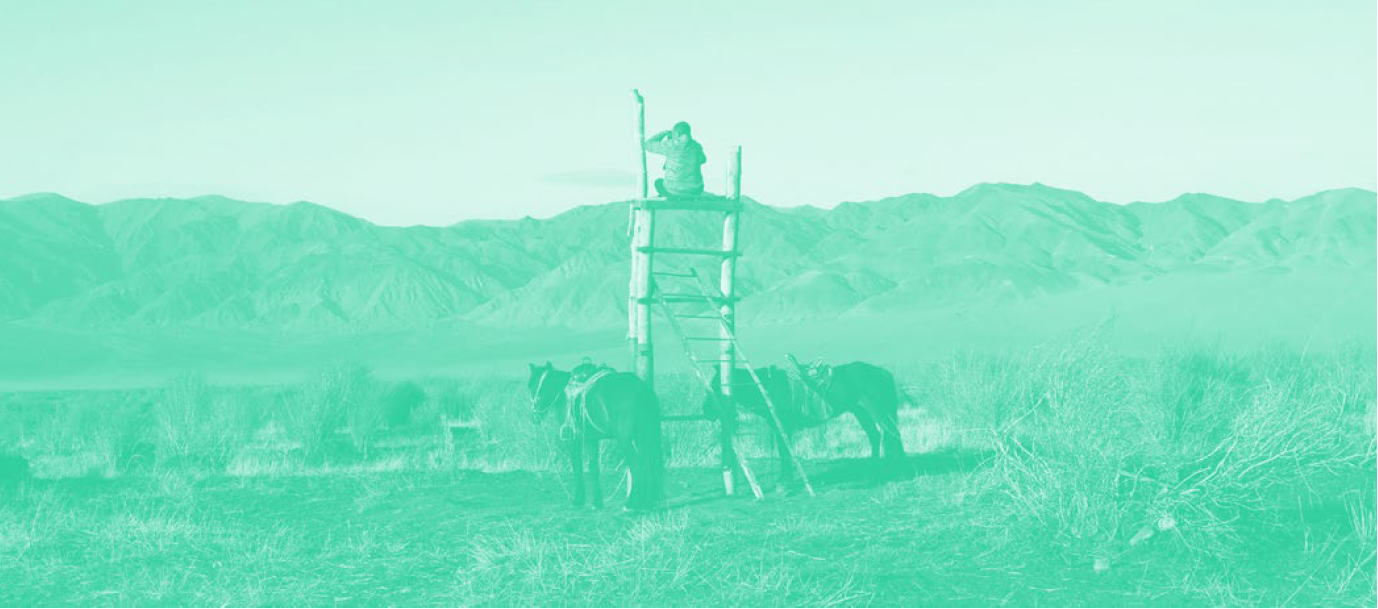Mongolia is unique. 30% of the population earn their livelihoods from herding livestock, leading a traditional nomadic life to enable their animals to access pasture throughout the year. Weather conditions can be extremely harsh, with long, stormy winters where temperatures can drop as low as -40C or -50C. Herders, and therefore the wider Mongolian economy, are vulnerable to the impacts of extreme winter weather. Dry summers can mean livestock do not gain the weight needed to survive winter, combined with harsh conditions this can cause mass livestock mortality known as ‘dzud’.
Harsh winters pose a serious risk to livelihoods and herder wellbeing. They can also be predicted, making it possible to act early to reduce harm and loss. In December 2018, using a dzud risk map created by the Mongolian National Agency of Meteorology and Environmental Monitoring, the Start Fund allocated £200,000 in anticipation of harsh winter. World Vision and Save the Children intervened in seven districts across the west of Mongolia. They provided vulnerable herders with unconditional cash, hay and fodder for livestock and a booklet on protecting children and family members.
Source: http://namem.gov.mn
In May 2019, the Start Network Team collaborated with Save the Children and World Vision in Mongolia to learn about the impacts of the project. We interviewed 188 herders across 4 districts, 95 of whom received support and 93 who didn’t. We triangulated the information they provided with local government, livestock traders, money lenders, relevant Mongolian government departments and other early action practitioners. While not statistically significant, indications are very positive. We learned that early action appears to work, protecting livestock and livelihoods; it pays, losses of only two goats per household cover project costs; timing is however critical, support must reach herders before late winter when risks peak for herding livestock.
- Early action works. Our results suggest that herders were around 1.3 times more likely to survive the winter without losing any livestock, suffered fewer financial losses and had more new-born livestock.
- Early action pays. The project costs around $120 per household, roughly the price of two goats. The results suggest we avoided livestock losses of around 7 sheep unit per household, avoiding losses far higher than the $120 per household invested. (Sheep unit is a way of counting livestock to ensure we reflect the relative values of each animal when counting a herd which contains several types of animals. For example, accounting for the fact that a horse is more valuable than a goat.)
- Timing is critical. 56% of interviewees drew attention to extremely harsh weather between January and March being the key cause of livestock mortality. Reaching herders before or at the beginning of this period is therefore key. Rapid funding and high-quality forecasting information enable this timely action.
Measuring impact helped build a strong case for anticipation in Mongolia. Our research also contributed significantly to our understanding of how herders prepare for and cope with winter, and how support from NGOs can complement this. The Start Network will continue to review the impact of our early action work, to better understand where and how anticipation works best, and how we can best support at-risk communities.

